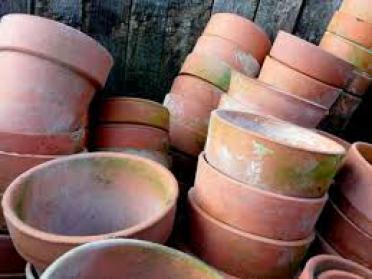Every week, parshaoftheweek.com brings you a rich selection of material on parshat hashavua, the weekly portion traditionally read in synagogues all over the world. Using both classic and contemporary material, we take a look at these portions in a fresh way, relating them to both ancient Jewish concerns as well as cutting-edge modern issues and topics. We also bring you material on the Jewish holidays, as well as insights into life cycle rituals and events...
The parshas we read this week, Tazria and Metzora, are about an arcane and somewhat mysterious topic – a series of diseases which appear as some sort of growth or discoloration on people, clothing, and houses. Often mistranslated as leprosy, these growths or fungi produce ritual impurity. When the disease is first suspected, the case is dealt with by a priest, who determines whether the affliction is the real thing or not. If it is determined by him to be Tzara’at, he then oversees the process of removing the impurity through a combination of quarantine, cleansing, and ritual, in the case of the person with the affliction, or laundering, destruction, and more ritual in the case of the diseased cloth or house. Traditionally, this disease is seen as a punishment for the sin of לשון הרע - tale bearing or slandering.
In the case of a house with Tzara’at we have an interesting dynamic. The homeowner notices that some of the house seems to be discolored, afflicted. He goes to the priest, who then commands that all utensils and vessels be removed, and only once that is done does he come to the house to decide what the halachic situation is: do we need the ritual, which might include the destruction of the afflicted stones, or even the entire house, or just a coat of paint?
The Torah explains that the priest instructs the homeowner to remove all the vessels first because once the priest determines that the house is, in fact, afflicted, all the vessels inside it are rendered impure and must be ritually purified. If they are made of clay, they can not be ritually purified, and must be destroyed. It is to prevent that from happening, and thereby save the owner’s property, that he is told to first remove the pots and pans and other vessels, and only then does the priest come and determine the house’s halachic situation.
The “trick” here is obvious. The Torah is telling us that, no matter how bad the afflicted part of the house looks, and even if it turne out to be afflicted, it is not halachically impure until the priest decides and announces that it is. Even the homeowner plays this halachic game: he is instructed by the Torah to say, when he first goes to ask the priest to come look at the suspected disease, that it looks to him “like” Tzara’at, rather than saying he has seen the disease. It is not the physical reality of the afflicted spot that determines its legal status, it is the pronouncement, ultimately made by the priest, that it is in fact afflicted, that does so.
This is a tremendous statement about the power of the halacha. A halachic decision determines what reality is for us. It is not the actual mold or fungus or whatever it is that makes the house impure – which is why there is still time to remove and save the vessels – it is the halachic decision and pronouncement that makes it so. I would add that this is also true about all pronouncements, about everything we say. I do not mean to claim that if I call a dog a cat it makes it so, but, to a very large degree, our words, what we call things, what we say about them, determines the reality of the world around us. Our words have the power to poison and make impure a relationship or interaction, or frame them in a positive and healthy way. The wrong word spoken about a person or thing can destroy forever the way we relate to them. Such is the power of the spoken word; it is the way we define the world around us, and determine whether things are, for us, pure or impure.
The Torah understands this power, and warns those who wield it – the priest in this case – to be very careful. That is the lesson of the clearing away of all the household vessels: you, who have the power to pronounce “pure” or “impure”, and thereby affect people’s lives, must be very conscious of and careful with that power, and have the well being of those who are effected uppermost in your mind, even to the extent of worrying about their cheap clay pots.
That the disease of Tzara’at is seen as a punishment for wrongful speech – slander, gossip, libel – is part of this understanding. The misuse of the power to call someone “impure” is punished by becoming impure ourselves. All of us wield a very powerful tool – language. Some of us, because of our position, have more of this power than others – we can officially and legally determine reality by what we say. All of us must be as careful as the Torah is to recognize that power, and use it sensitively, carefully, and with an extreme commitment – even to the extent of worrying about their cheap clay pots – to the ways we might affect the well-being of those we are talking about.
Shabbat Shalom,
Shimon



Get inspired by Metzora Divrei Torah from previous years